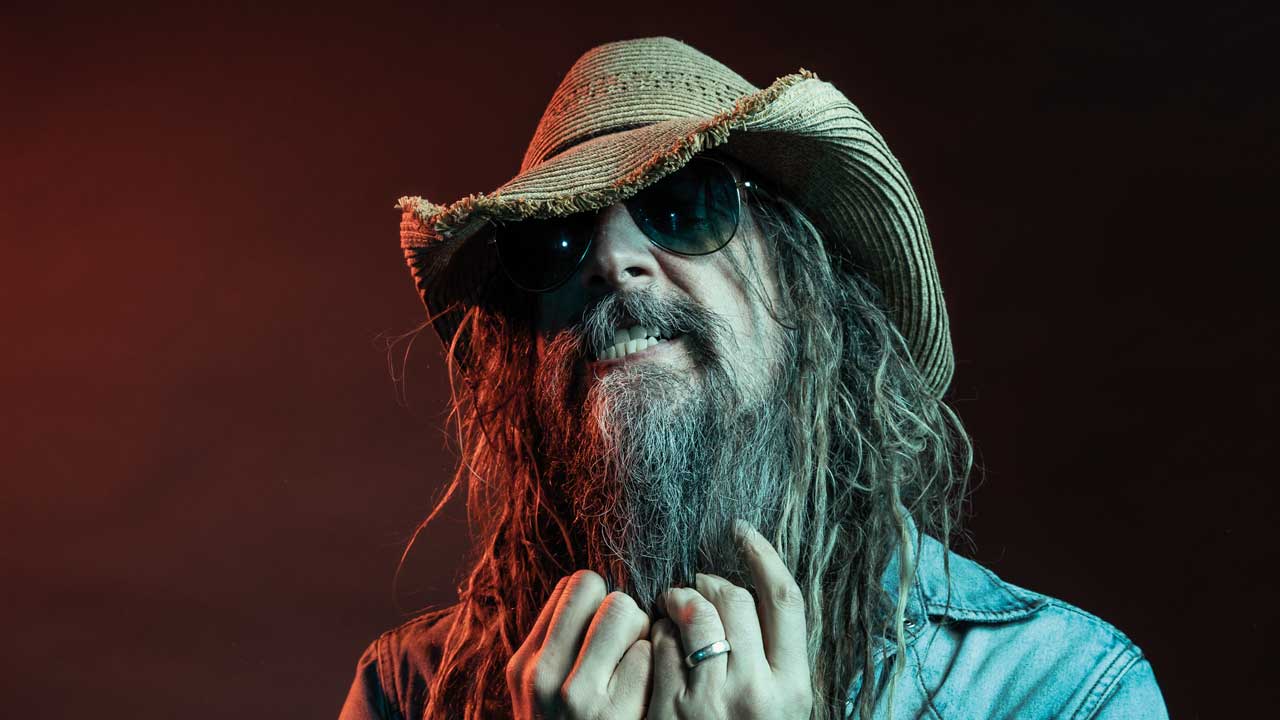Rob Zombie doesn’t like looking backwards. He may have just wrapped up the Twins Of Evil tour he co-headlined with his old friend Marilyn Manson, but he’s not buying into the current nostalgia for all things 90s.
“Who gives a shit about the 90s?” he says. “I don’t even remember it, so I’m certainly not gonna go back and try to relive it.” He raises his voice like he’s talking to a small child or a deaf aunt: “I’M SORRY IF YOU MISS IT EVERYBODY, BUT YOU SHOULD HAVE BEEN THERE.”
He laughs. The former White Zombie frontman turned solo star/moviemaker/horror icon can afford not to dwell on the past. He has plenty to keep himself occupied right now.
There’s his latest movie, 3 From Hell, the third instalment in the series that began with 2003’s cult goresploitation classic House Of 1000 Corpses and continued with its 2005 sequel, The Devil’s Rejects. He finished filming the new film earlier this year and started editing it literally two days ago. “The second was so different to the first one, I wanted the third one to be different yet again,” is all he’ll give away about it. “If you’re just retreading the same movie for a profit, that’s a bummer.”
Then there’s his next solo album, the follow-up to 2016’s none-more-Rob-Zombiefied The Electric Warlock Acid Witch Satanic Orgy Celebration Dispenser.
Rob Zombie is King Freak. He walks it, talks it, sings it and makes movies about it. And this is exactly how he does it…
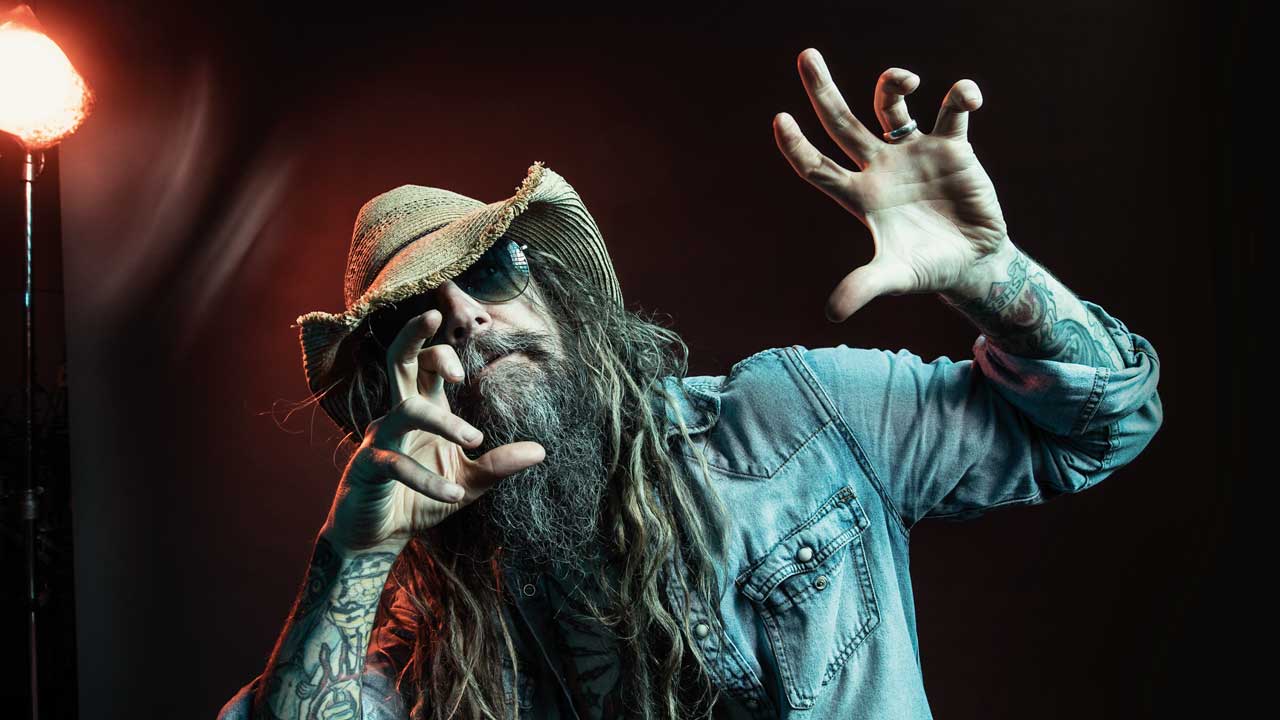
Rob doesn’t know where his freak gene came from. He grew up in a blue-collar family in Haverhill, Massachusetts, 20 miles down the road from Salem, scene of the infamous witch trials. His mother’s family worked in travelling carnivals, but by the time he was old enough to go to see them, the glory days of that world were long gone.
“It used to be grand and more circusy,” he says. “But by the time me and my brother were around it, which was the early 70s, it had degenerated to this sleazy thing that would blow into town for a week, then blow out. The only time it was fun was when there was a haunted house and we could go in, like, a thousand times. But mostly we wanted to be home, screwing around.”
Or watching TV. If anything made Rob Zombie a monster, it was television. As a young child, he would ring everything he wanted to watch in that week’s copy of the local listings guide. There were a lot of rings.
“I was obsessed with all movies,” he says. “I grabbed a TV guide every week and circled everything I was going to watch for the coming week, which was always a lot. It didn’t matter if it was a horror movie or a gangster movie or a western or a comedy. I remember, when I was pretty young, going to the local public library and they had a 35mm print of King Kong that they were showing the kids. That was the beginning of getting hooked on that stuff.”
He gravitated towards the weirdos and bad guys. The ones who were determined to smash, chomp, stomp, laser-beam, ruin and destroy anything that crossed their paths: King Kong, Frankenstein’s monster, the Creature From The Black Lagoon…
“In those films, the monsters were the good guys, in a sense,” he says. “King Kong and the Wolf Man weren’t really killing people or doing damage unless they were pushed. It was more like, ‘How do I fit in?’ I think, subliminally, you relate to that.”
He was just as drawn to Alice Cooper, back when he was a genuinely macabre figure. He liked Alice because Alice was an outsider. Rob saw himself as an outsider, too. Of course, that’s something everybody says, right?
“Yeah, I know,” he replies. “But I just felt like I didn’t fit in. It never got any better as I got older. When you’re really little, you’re trying to fit in, ’cause you don’t understand the concept of not fitting in. But by the time you’re older, you’re like, ‘Fuck everybody, I don’t give a fuck, fuck you!’ And then you discover punk rock, and then you really don’t fit in.”
- The 50 best Metallica songs of all time
- This is the setlist from the all-star Chris Cornell tribute show - with pictures
- Whitechapel return with brooding new track Third Depth
- Slipknot’s Corey Taylor confirms studio return
But there were real-life monsters, too. One of Rob’s earliest memories growing up was the trial of Charles Manson, the psychopathic cult leader who was jailed for ordering his followers to carry out a series of brutal killings in the late 60s. To some, Manson went beyond anti-hero and out the other side – a real life equivalent of the original rebel angel, Lucifer. In 2017, the year of Manson’s death, Rob narrated a documentary on him.
“As normal as my parents were, they never censored anything. My mom had Helter Skelter [the best-selling true crime book on the Manson killings] and I remember looking at the pictures and just being fascinated by it. I was four when it happened, and I’d see it and find it fascinating.”
Did you mourn him when he died?
“No, of course not. But he was infinitely entertaining. I kind of miss him being around. Should he have been in prison? Of course. But nobody can deny he was entertaining. It’s kind of a bummer that there’s no more entertainment coming from that guy.
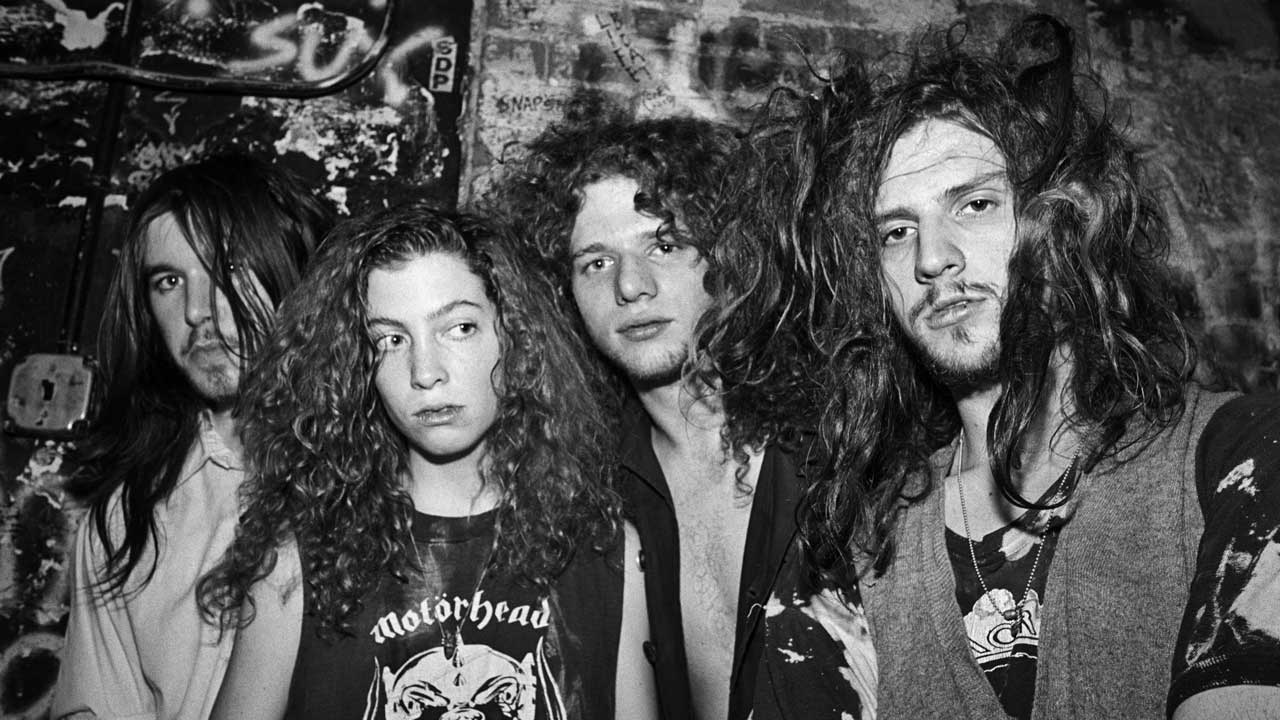
A long-gone club in New York City, sometime in the late-80s. Onstage, a bunch of crusty-looking, snaggletoothed gutter crawlers with dreadlocked heads and dumpster clothes are making an unholy racket that sounds more like a cavalcade of garbage cans clattering down a back alley than it does music. Their name is White Zombie, and they have come for your souls…
Rob moved to the Big Apple in the early 80s, straight from school. Punk rock had inspired him to become a musician and he stepped right into a milieu of artists and freaks, crazies and drug addicts. It was under the underground, an alternative scene long before ‘alternative’ became a cheap buzzword. But even there, Rob and his band White Zombie didn’t quite fit.
“We were too metal for the art crowd and too arty for the metal crowd,” says Rob. He wasn’t a drug guy either, which set him even further apart from his peers. Way before White Zombie hit, he saw friends and acquaintances get hooked on the hard stuff, get strung out, overdose, die.
“I knew so many people who got fucked up,” he says. “It just didn’t interest me. I was like, ‘I’ve seen that movie. I know how it’s going to end.’ I’m always amazed when someone new gets hooked on heroin. I’m, like, ‘Really? Is the jury still out on this?’” He puts on a dumb voice. “‘We’re not sure if this is bad yet. We’ve got to try it for ourselves. I’m just gonna stick this needle in here…’”
There was another reason he steered clear. Rob Zombie was always ambitious. He wanted White Zombie to be more than just another bunch of noise-rock no-marks playing some Bowery shithole to zero people.
“When you’re creatively obsessed with the band, like I was, you’re always in it,” he says, referring to the artistic process. “I wasn’t in the band to stand onstage and be adored. I wasn’t that guy sitting in the hotel room, wondering why people weren’t still cheering. There was always something to do, something to think about, to work out how you could do things better.”
The steely work ethic paid off. White Zombie’s third album, 1992’s La Sexorcisto: Devil Music Vol 1, was a mondo bizarro explosion of B-movie shlock disguised as early 90s alt-metal that pushed them out of the gutter and onto MTV and into arenas. That multi-platinum success didn’t scramble Rob Zombie’s brain like it did Kurt Cobain’s was down to the fact that his band were an eight-year ‘overnight’ sensation. That and the fact that Rob Zombie’s brain seems to be fairly unscramble-able.
“It wasn’t like we were this unknown band in a club who suddenly got huge,” he says. “I was smart enough to listen to the horror stories. A lot of bands back then would sign to major labels and go, ‘We’re superstars.’ I’d go, ‘We’re signed to Geffen Records but nobody knows who the fuck we are, nobody gives a shit.’”
Only people did give a shit – lots of them. Ironically, the one person who was giving less of a shit by the day was Rob himself. By the time of White Zombie’s fourth album, Astro-Creep 2000, he began to feel like an stranger in his own band.
“It was not a fun situation,” he says. “The situation had got so terrible that I was, like, ‘I don’t want to do this any more, I don’t want to spend my whole life working to this goal so I can be miserable. I’d rather play clubs on my own and have fun than play arenas and be miserable.’”
So Rob Zombie did what any self-respecting mad scientist whose grand experiment had gone wrong would do. He killed the monster he’d created.
“It was a tough decision,” he says. “It seems like some diabolical plan I had, but really I was just on a quest to actually enjoy myself.”
How’s that working out for you?
The mad scientist laughs. “Oh, it’s working out great.”
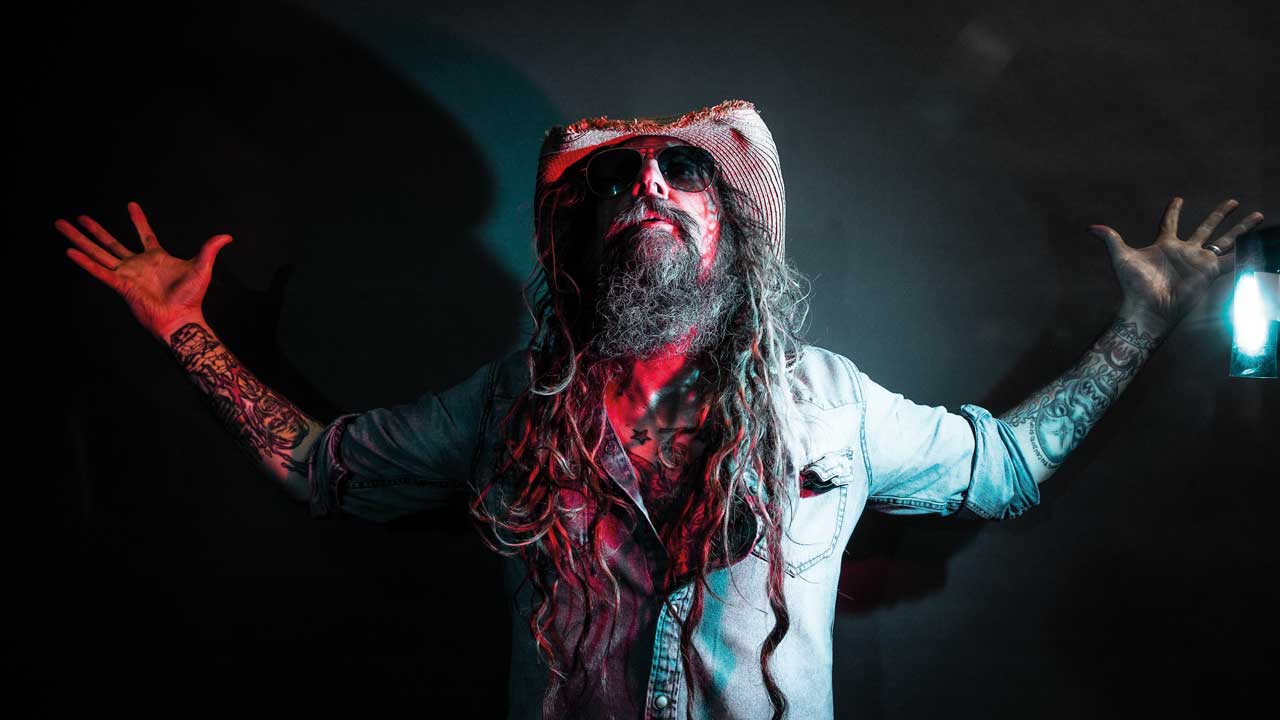
White Zombie officially split in 1998. A lot of people would have taken a break, maybe had a holiday. But Rob Zombie’s not a holiday kind of guy. Instead, he threw himself back into the thick of it. Before you could say “Plan 9 From Outer Space”, he’d made two solo albums – 1998’s Hellbilly Deluxe and 2001’s The Sinister Urge.
But that wasn’t all. In 2000, he directed his first full-length movie, House Of 1000 Corpses. He’d made videos for White Zombie before, as well as Ozzy Osbourne and Black Label Society, but this was a whole different beast, not least because no one expected a long-haired rock star to get behind the camera.
“People are very accepting now. Everyone’s got to be a rocker-slash-actor-slash-model-slash-whatever. If you only have one career, it’s like, ‘Oh, that’s all you do?’ But back then it was very different. [People were like] ‘What, being in a band isn’t enough for you? Now you gotta make a movie?’”
He did the rounds in Hollywood, squeezing himself into the offices of movie people, throwing out his pitch, seeing if anyone would bite. Eventually, Universal Studios did. He’d designed a horror-themed theme park ride for them, so he already had a foot in the door. The studio coughed up a $10million budget – or it might have been $14million, he can’t exactly remember exactly how much. “That was peanuts to them,” he says. “We weren’t even on the radar. Now you’d kill someone to get that budget, but back then it was, like, ‘Oh, whatever.’
Next to the movie business, the music business was a walk in the park. House Of 1000 Corpses wrapped in 2000. It came out in 2003. “Getting the movie made was easy. Getting the movie released was a nightmare,” says Rob. He doesn’t say it, but the subtext is clear: that’s Hollywood for ya, baby.
That wasn’t even his worst experience, though. That came a few years later, when he was working on his 2007 remake of classic 70s slasher movie Halloween and its sequel two years later. Two of the money-men involved behind the scenes were Bob and Harvey Weinstein, owners of the Weinstein Company. You might have heard of them.
“That was the worst situation when it came to meddling,” he says, annoyance creeping into his voice even now. “Particularly Bob, who is the person I dealt with day to day. They treated everyone like they were idiots – the directors, the actors, the assistants, the publicists, everyone. It was soul-sucking. And it was 100% a power thing.”
He pauses when we bring up the obvious. “I wasn’t aware of what would come out later, all the sexual stuff. I had no dealings with Harvey at all. All I knew is that Bob Weinstein was a maniac.”
You’ll not be surprised to hear that Zombie never clicked into the Hollywood machine. He made a handful of friends in the industry – Nicolas Cage was one of the few – but hated the three-ring circus that came with movie-making. “I don’t like going to parties, I don’t like going to premieres, I don’t like doing any of that stuff. It’s not my thing. I’m not a schmoozer.”
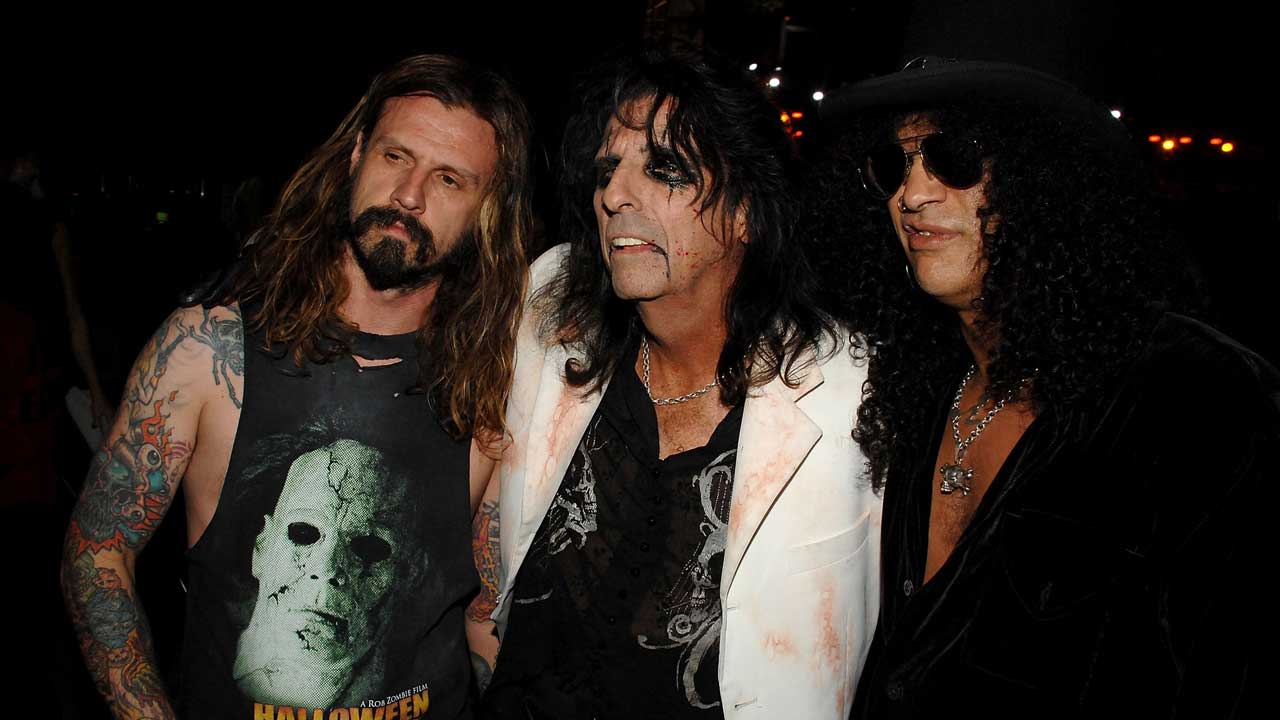
When it comes to Rob’s track record on the silver screen, if there’s one thing that unites his films, aside from gore and frights, it’s that they’ve been roundly crucified by critics. House Of 1000 Corpses’ rating on influential movie review aggregator Rotten Tomatoes is 19%, the same as his second Halloween movie. His first Halloween movie fared better, with 25%. His highest rated film is The Devil’s Rejects at 53%. An improvement, but nothing to have Steven Speilberg quaking in his boots.
“I really don’t care about bad reviews. I don’t read them,” he says. “There used to be movie critics that knew a lot about film and they were informed. Now I’ll read things and go, ‘These jackasses don’t even know shit about movies. It seemed like they started watching movies three weeks ago, it’s fucking stupid. It’s one big suck-ass bullshit thing.”
Besides, he says, he got used to shitty reviews early on. A few years ago, he picked up a Lifetime Achievement-type award from one US music magazine.
“And I got onstage, and I’m holding this award. I say, ‘When White Zombie’s first Geffen record came out, your magazine reviewed it and said, ‘This is the worst band ever.’ So thanks for this award.’”
If reviews don’t faze Rob Zombie these days, it sounds like nothing else much does either.
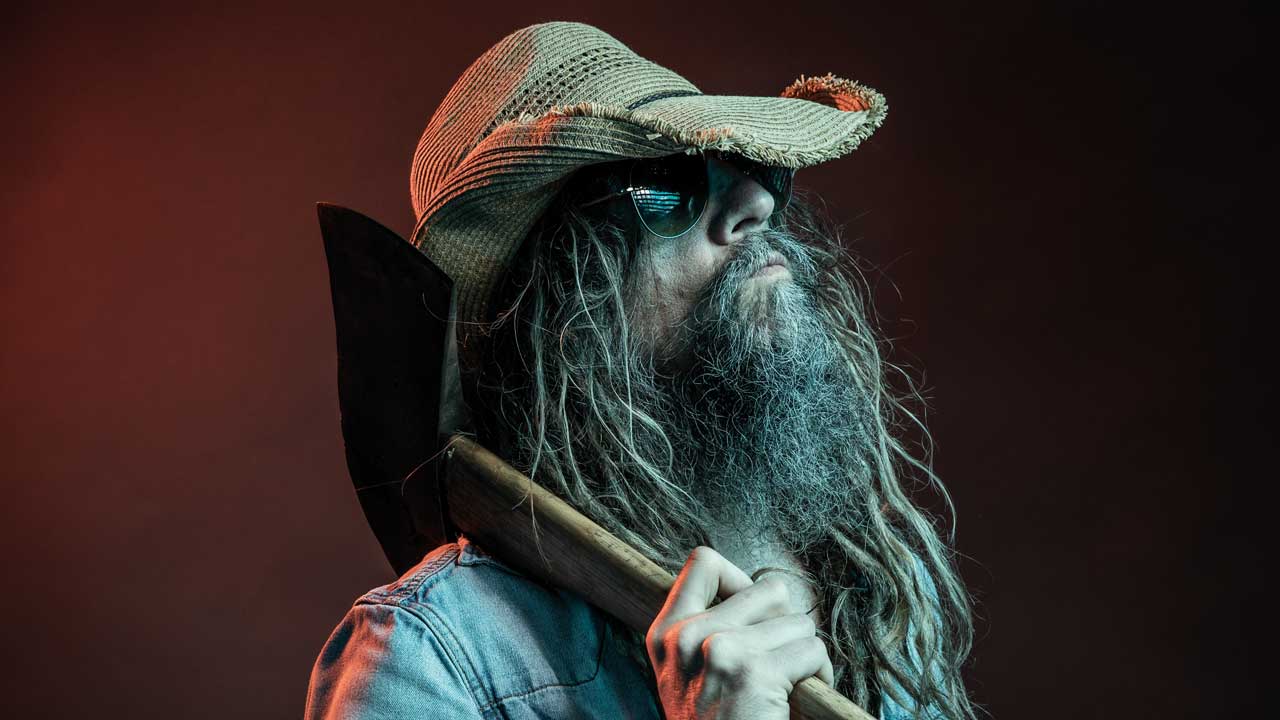
“When I was a kid, I was insecure about everything. Then one day I just realised, ‘That’s fucking stupid’ and decided to flip the switch. You have to go through life doing these things with complete confidence. People come up to me all the time and say, ‘What’s your advice for someone trying to break into the business?’”
And what’s your answer?
“Well, as soon as someone asks me for advice, I feel like they’re asking me for a shortcut. So I feel like they’re already fucked, ’cos there are no shortcuts. But I go, ‘If you don’t mind being told that you fucking suck by complete strangers all day long, this might be the business for you. Because that’s what it’s like.
And I said that before internet. Now it’s a hundred times worse.”
So what actually scares Rob Zombie, King Of Horror?
“I don’t really think in terms of being scared in those terms. What scares me is that people are becoming so easily manipulated by bullshit. That’s scary. This new thing where someone can basically say something that makes no sense, but because someone said it, it has validity. ‘I can fly and walk on water, and you have to believe it because I’ve said it.’ No we don’t. You’re full of shit. It goes back to PT Barnum: ‘There’s a sucker born every minute.’ You like to think there aren’t more suckers born every minute. But there are.”
After we finish talking, Rob Zombie will go back to his editing suite to resume work on 3 From Hell. That will keep him very busy for the next few months, and when that’s done he will move his whole set-up to Los Angeles to finish off everything that needs finishing off on the film. Once that’s done, he will refocus his attention on the new album. He has already recorded it, but there’s no point putting it out there until he can devote his whole attention to it. In true Hollywood fashion, he’s not giving out any spoilers about the record.
“What I will say is that every time you start a record, you go, ‘Jesus Christ, does this ever get any fucking easier?’” he laughs. “Every record, every movie, they are all a struggle.”
Struggle or not, if the young Rob Zombie could look into the future, he’d be impressed by what his older self has checked off his to-do list. Form a band? Tick. Become a rock star? Tick. Make a horror movie? Tick, tick, tick. What ambitions does Rob Zombie have left to achieve?
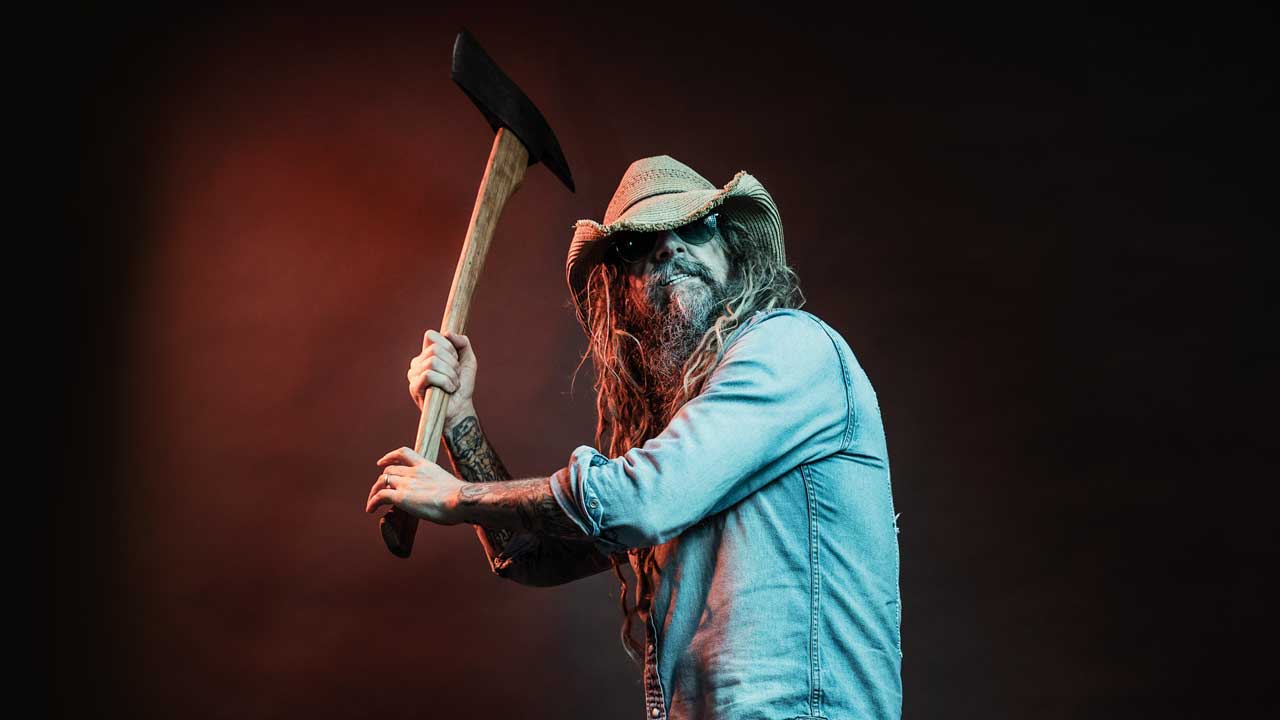
“I’ve worked with most of the people I wanted to work with,” he says. “I guess the ambition is always wanting everything to be bigger and better. How do I make this album better than the
last one, how do I make the next show bigger, how do you get 20,000 to come and see you next time you play rather than 15,000?”
Do you ever take a moment from working to think about what your legacy is going to be?
“No. I don’t look back, ever. It’s, ‘Fuck it, it’s done, I’m on to the next thing.’ Life’s not worth living if you feel the best is behind you. That’s just demented. I always look forward.”
Is there a part of you that secretly wants to be accepted?
“Absolutely not. ‘Accepted’?! I don’t even know what that would mean. If everyone loved what I was doing, I’d be thinking, ‘Aw man, I’ve made something really fucking generic and bad.’”
Because that, in the eyes of this eternal outsider, would be the most horrific thing of all.
This article originally appeared in Metal Hammer issue 315
